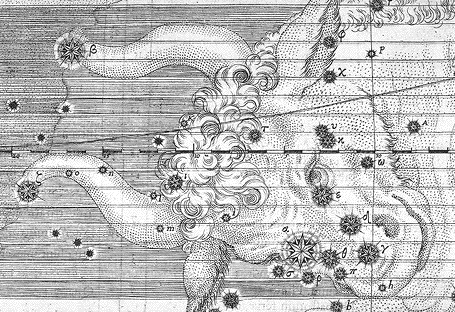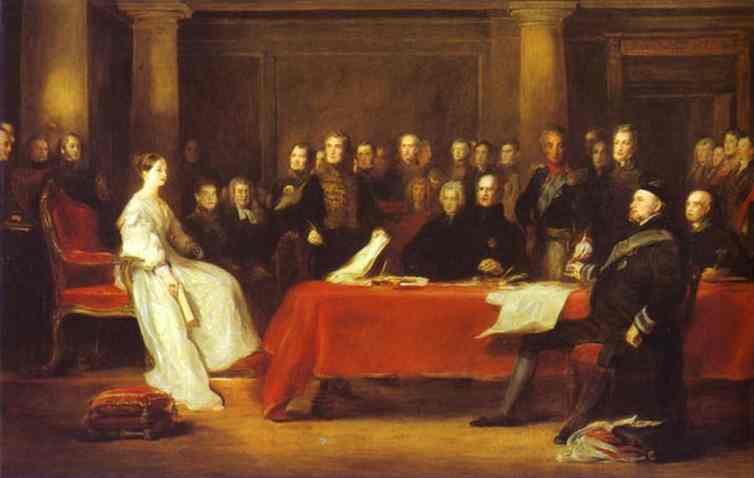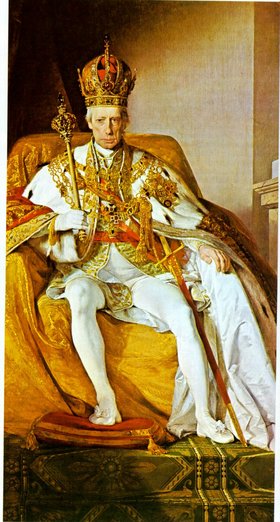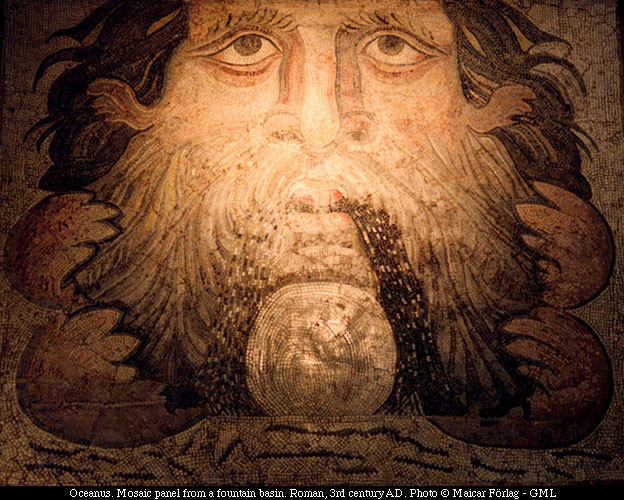
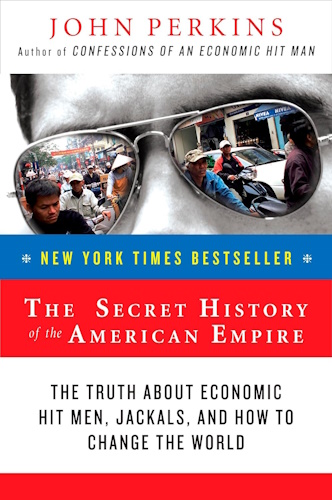

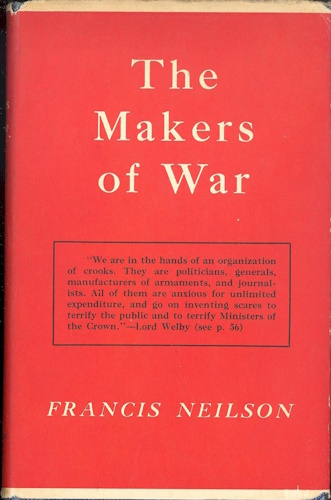

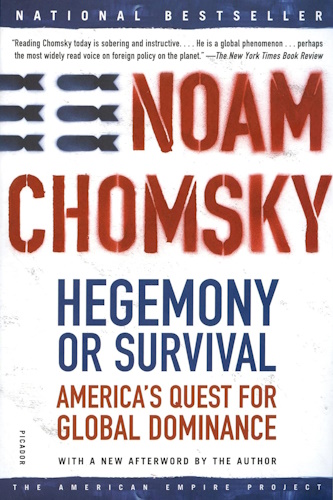



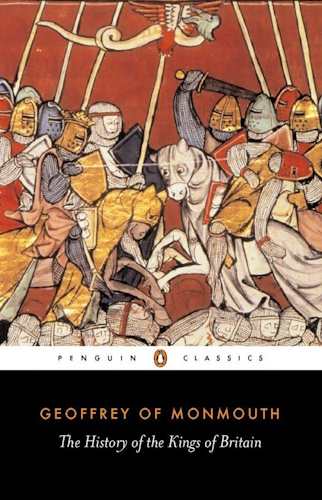

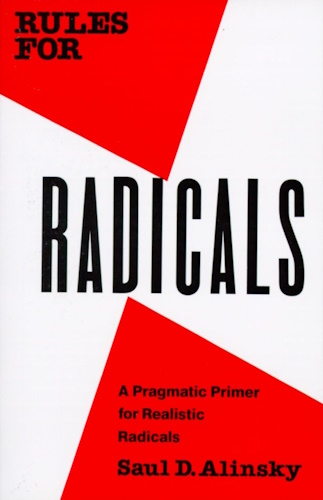

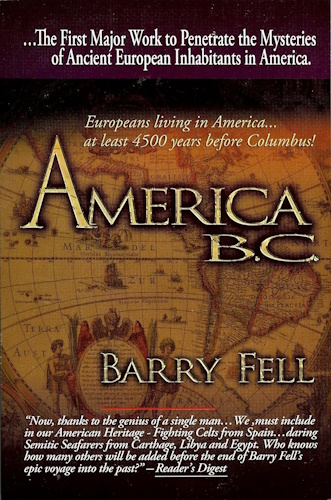

Whence & Pence
A Series
by
Douglas V. Gnazzo
January 6, 2005 - April 18, 2005
(Retrieved from archive.org)
![]()
Part 2: The Confounding
January 19, 2005
INTRODUCTION

In part one it was shown that the colonists had been sent by the King of England to explore the New World and to establish outposts, colonies, towns, and eventually cities and larger commonwealths.
Permission was granted by the King to come to America according to Royal Charters, Charters, Incorporations, and Letters of Patent that were all decreed by the King according to the use of the Royal Prerogative, see Whence & Pence, Part One: The Founding


In this the second part, The Confounding, we are going to examine some of the different documents that were used in the Founding of America and the establishment of the United States of America. We will be keeping an eye out for any con-founding statements or documents, the consummate tool of the art of deception. 'Tis a heavy toll the homage of Lucre exacts according to the law of laws by which justice occurs – the reckoning, the balancing of all books of record.
"Ye coasts, pray tell my loving father that Europa has left her native land,
seated upon a bull, my ravisher, my sailor, and as I think, my bed-fellow."
[Europa. Nonnos, Dionysiaca 1.130]
DEFINITIONS
According to Sir William Blackstone, corporations in England were of two divisions, lay and ecclesiastical. Of the ecclesiastical variety, some were corporation sole, and some were corporation aggregate:
"Another division of corporations, either sole or aggregate, is into ecclesiastical and lay. Ecclesiastical corporations are where the members that compose it are entirely spiritual persons; such as bishops; certain deans, and prebendaries; all archdeacons, parsons, and vicars; which are sole corporations; deans and chapters at present, and formerly prior and convent, abbot and monks, and the like, bodies aggregate."
THE PLAY – ON WORDS
Now here's where the barristers really earned their keep, at least to keep their heads: the last line of the Virginia charter reads: "in free and common soccage onelie and not in capite." I mean give me a break, is that part of the English language or did they make it up?
Tricky little devils; first they grant you all kinds of stuff and then they take it back, that's if they ever gave it away to begin with, which is very questionable and definitely arguable, especially in those places they call courts, where the jesters hang out and perform their feats of magic. But as jesters would have it, just for laughs, we'll try to discern what they were saying, and not saying.
A FEW LAST DEFINITIONS
SOCCAGE or socage comes from the Latin socagium, which refers to the tenure [to hold] as in the land of one whom his Lord has jurisdiction over, which he allows the tenant to hold [the land] in return for a fixed payment of certain nonmilitary services to his Lord, usually in the form of the cultivation of the land. If it were military payment then it would be that Knight fief feudal type stuff; and the King already had plenty of that, he wanted more gold and silver.
So, was there any fixed payment mentioned in the Charter? Let's see, way back up near the top there was something that sounded like payment:
"yeilding therefore yerelie to us, our heires and successors, the fifte parte onelie of all the same goulde and silver and the fifteenth parte of all the same copper soe to be gotten or had, as is aforesaid, and without anie other manner of profitt or accompte to be given or yeilded to us, our heires or successors, for or in respecte of the same."
Sounds like somebody was paying or yielding something to "us," whoever the "us" was. Maybe it was the Royal Prerogative guys.
TENANT IN CAPITE [L. in + capite, abl. of caput head, chief.], or TENANT IN CHIEF are by the laws of England, one who holds immediately of the king. According to the feudal system, all lands in England are considered as held immediately or mediately of the King, who is styled lord paramount. Such tenants, however, are considered as having the fee of the lands and permanent possession. [Blackstone].
Yup, them barristers did a good job, probably got a bonus, as it sure sounds like somebody got the short end of the stick, and I don't think it was the King; and Sir Walter got more than he bargained for, he got the long end of the axe – the end with the blade attached, to detach.
CHARTERS
In England Royal Charters are charters granted by the Sovereign on the advice of the Privy Council, which creates or gives special status to an incorporated body. It is an exercise of the Royal Prerogative. [Wikipedia]
So what does all this mean? Simply put, the King held title, the London Company and the Plymouth Company were tenants, and the settlers were sub-tenants. Who would have thought?
And the King by Royal Prerogative and Royal Charter can do anything he wanted, as exemplified by the beheading of Sir Walter Raleigh; that's one way to break a contract – as Sir Walter didn't just get executed, he got beheaded for TREASON, not that that would have any effect on any legal issues or contracts he had engaged in – would it?
The Privy Council and the Court of the Star Chamber were legal tools the King sometimes used. Star chamber sounds pretty cool; almost scary though, makes you think the Vulcans might be lying in wait.
Victoria held her first Privy Council meeting on the
day of her accession
STAR CHAMBER
"In the Star Chamber the council could inflict any punishment short of death, and frequently sentenced objects of its wrath to the pillory, to whipping and to the cutting off of ears. ... With each embarrassment to arbitrary power the Star Chamber became emboldened to undertake further usurpation. ... The Star Chamber finally summoned juries before it for verdicts disagreeable to the government, and fined and imprisoned them. It spread terrorism among those who were called to do constitutional acts. It imposed ruinous fines. It became the chief defense of Charles against assaults upon those usurpations which cost him his life. ..." [Edgar Lee Masters - Wikipedia]
We will revisit the chamber a little later, as it has a bit to do with the genesis of The War Powers Act – only in defense of the realm, however; especially in defense of the bankers realm – as seen in 1933-34 in The United States by Roosevelt's Gold Reserve Act. Honest Money, Part VII: The Moneychangers - Secrets of the Temple
SO WHAT'S THE POINT?
The point is that the King of England sent explorers and settlers over to America and claimed a land that already had plenty of Native Americans living on it – they called them Indians. By what right did he claim the land?
By the way Kings always get what they want, they take it by Royal Prerogatives, according to Royal Decrees and Charters which issue "the law" – or was it prerogative? Gee, maybe the two were the same?
And naturally this was all backed up and enforced by the King's armies; the might is right philosophy: my army is bigger and meaner than yours so I'm gonna kick your butt and take your stuff; including your people, your land, your gold and silver, whatever I can lay my grubby little hands on; sort of like coveting thy neighbor's stuff and acting it out. Not to mention that it sounded like a lot more was granted in the Charters than might have really been the case.
"To seek power by servility to the people is a disgrace, but to maintain it by terror,
violence, and oppression is not a disgrace only, but an injustice."
[Plutarch]
DECLARATION OF RIGHTS
Thomas Jefferson wrote the Declaration of Independence. He took a great deal of its basics from the Virginia Declaration of Rights, which was written by George Mason prior to Jefferson's work. 1776 - The Constitution of Virginia; June 29 also called the Bill of Rights or Declaration of Rights, was the foundation of the United States Bill of Rights. The following quote from the Declaration of Virginia sums up the ticked off, fed up with the King attitude that had become rightfully prevalent in America: (note foreign mercenaries, a point that will be revisited)
"Whereas George the third, King of Great Britain and Ireland, and elector of Hanover, heretofore intrusted with the exercise of the kingly office in this government, hath endeavoured to prevent, the same into a detestable and insupportable tyranny, by putting his negative on laws the most wholesome and necessary for the public good:"
"By transporting, at this time, a large army of foreign mercenaries, to complete the works of death, desolation, and tyranny, already begun with circumstances of cruelty and perfidy unworthy the head of a civilized nation:"
"By which several acts of misrule, the government of this country, as formerly exercised under the crown of Great Britain, is TOTALLY DISSOLVED."
I would venture to guess that even George got the message. Note the elector of Hanover part, as that will get revisited – something to do with Henry the Lion and lines of descent; very interesting to see where they're descending to, not that they necessarily know themselves, as oft times those that pay tribute to Lucre don't understand that Lucre pays tribute to another, and when push comes to shove, he's gonna push pretty hard, and they all just might end up in the abyss – but then again, maybe that's what it's there for.
THE HOUSE OF LIONS

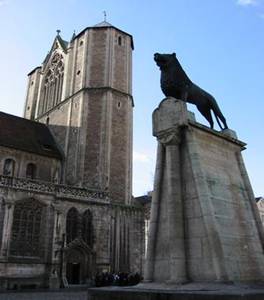
AMERICAN REVOLUTION
The royal disposition to rule by tyranny, which is oft times mistaken for the rule of law, is what set the Colonists off against the King of England. Being sensible human beings, they knew when they were being used as pawns in a real live game of chess, which is a game structured after the conquest of war. They said the hell with you and your mercenaries we've had enough. They even wrote out A Declaration of Independence, a very beautiful yet powerful piece of writing.
And the rest is history as they say. We went to war against England to break away from the tyranny of the unjust rule of Royal Decree; and that the King of England was Sovereign. The words in Virginia's Constitution address this issue very clearly when it says:
SEC. 2. That all power is vested in, and consequently derived from, the people; that magistrates are their trustees and servants, and at all times amenable to them.
Which means the people are Sovereign, not the King or government. Now there's a novel idea. It would seem that those that hold office on high have forgotten the Spirit and Power by which our country was formed – We The People. This is the essential reason we fought the Revolutionary War against England, to obtain our freedom and liberty – to be masters of our own fate.
PARIS PEACE TREATY
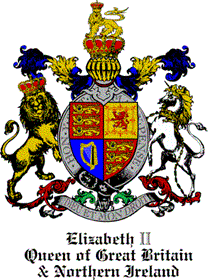
Upon winning the Revolutionary War the United States signed a Treaty with England called The Paris Peace Treaty of 1783. There is some very interesting wording in this treaty, which never seemed to be questioned then or now, yet it has major implications and ramifications.
The first point of interest is in the opening "salvo" where besides being King of this and that, George the III is also referred to as prince elector of the Holy Roman Empire, which means that he was the Holy Roman Emperor.
Emperors are much more powerful then mere Kings; and the Holy Roman Emperor was the highest title one could hold. "An emperor is a monarch and sovereign ruler of an empire or any other imperial realm. Emperors are generally recognised to be above kings in honour. They may obtain their position hereditarily, or by force." [Wikipedia] Doesn't leave them with too many options – just the two.
The big deal about these guys is that the Pope of Rome ordained and sanctioned their Rule, which would kind of imply that the Pope was a bit more powerful than they were, otherwise wouldn't they be giving confirmation to the Pope's authority and position, instead of vice versa?
Note in the above coat of arms how Royalty loved lions, especially the House of Anjou, which will be revisited. For a set of the Coat of Arms of the British Sovereignty check out Royal Coats of Arms; Queen Elizabeth, Prince Charles, Prince ...
EMPERORS
The following depicts just how Royal these guys were, or at least looked – although Francis here looks like he could sit in for the court jesters if they were out sick or something. But then again;
that's quite a serious disposition his face expresses. Maybe he was so busy he didn't get out much; and he sure had a lot on his mind, ruling over his vast empire and domains. And as will be seen, dealing with the Pope can be very stressful, even for an Emperor.
WHO'S WHO – AND DID IT MATTER
So what does any of this have to do with the Revolutionary War and the Paris Peace Treaty? Well for starters, it establishes that the King of England, when he signed the Paris Peace Treaty, was also the Holy Roman Emperor, which means he derived his ultimate title and authority from the Pope in Rome.
Kings were very powerful, Emperors were even more powerful, and the Holy Roman Emperor was the most powerful. But if the Pope is the one who ordained and confers the power of authority on the Holy Roman Emperor, then it seems like the Pope is a major player in the game of the most powerful Rulers of the Universe. Kings rule Nations, Emperors rule Empires, Pope's rule the Emperors – at least the Holy Roman Emperors, thanks to Constantine and his Donation.
Seems that King John, back in the early 1200s, wasn't particularly thrilled, nor did he think it necessary, to get the blessing of the Pope to confirm his Coronation as Emperor. When the Pope had Langston placed as the Archbishop of Canterbury, King John got a bit upset; and he let Pope Innocent the III know that he was upset. So they squabbled and quarried back and forth for a while until the Pope got mad, I guess he forgot the part about turning the cheek and that the meek shall inherit the Earth. Seems Innocent wasn't all that innocent, as King John soon learned.
Pope Innocent III responded to King John by accusing him of "impious persecution" whereby the King had tried to "enslave" the English Church. So at first the Pope played it easy and simply imposed an interdict on England, which meant that no religious ceremonies could be performed in England, as the Pope was not giving his "blessing" of bestowal. But King John remained steadfast.
So the Pope decided it was time to get serious, unless someone decided it for him, which is a distinct possibility; regardless, the Pope excommunicated King John. Poor King John was starting to see that it wasn't a good idea to get the Pope mad, as he has some very powerful friends of great influence; and they could rock with the best, as in rock, paper, and scissors. They didn't lose many hands – if any.
Pope Innocent the III let it be known, that maybe the meek would one day inherit the Earth, but if they did, it was going to be His Earth First, as he got King John to sign a most interesting document, which doesn't look too good up close, especially for the barristers of England as it looks like they screwed this one up – Royally. It looks like The Pope had some pretty smart law experts of his own, in Cannon Law and all the other types of Law as well; and to top it off, they had a complete monopoly on Divine Law. King John realized the deck was stacked against him.
THE CONCESSION OF 1213
In 1213 King John signed an agreement with the Pope by which John basically signed over all of England to the Pope, making England a fiefdom of Rome. Funny, how such an important document as this is hardly ever mentioned or discussed. The following, from King John's Concession, 1213 [click on hyperlink to view complete agreement] sums it up quite well:
"do offer and freely concede to God and His holy apostles Peter and Paul and to our mother the holy Roman church, and to our lord pope Innocent and to his Catholic successors, the whole kingdom of England and the whole kingdom Ireland, with all their rights and appurtenances"
Sure does sound like King John conceded the whole kingdom of England to Pope Innocent III. The above document is in the Britannica Encyclopedia as well as the Medieval Sourcebook of History. This all took place back in 1213.
As further evidence that King John conceded England to the Pope of Rome the following letters between the two concerning the Concession are offered:
"To prevent any questioning of these terms at any time in the future, and for the greater surety of our offer and concession, we have caused this charter to be made and to be sealed with our golden seal; and as tribute for this the first year we pay a thousand marks sterling to the Roman Church by the hand of the said legate.
This offer and concession so piously and wisely made we regard as acceptable and valid, and we take under the protection of Saint Peter and of ourselves your person and the persons of your heirs together with the said kingdoms and their appurtenances and all other goods which are now reasonably held or may in future be so held: to you and to your heirs, according to the terms set out above and by the general advice of our brethren, we grant the said kingdoms in fief and confirm them by this privilege, on condition that any of your heirs on receiving the crown will publicly acknowledge this as a fief held of the Supreme Pontiff and of the Roman Church, and will take an oath of fealty to them. Let no man, therefore, have power to infringe this document of our concession and confirmation, or presume to oppose it. If any man dare to do so, let him know that he will incur the anger of Almighty God and of SS Peter and Paul, His apostles. Amen, amen, Amen."
MAGNA CHARTA

King John seemed to have been born under a bad sign, he was always fighting a war with somebody or having some kind of problem. John also inherited a financial mess from King Richard the Lion Hearted, and continually fought with France over English land holdings there. Wars cost money, and these battles with the French were no different, so King John raised the taxes of the landed nobility or Barons. Obviously, the Barons didn't like, nor want to pay, higher taxes, so, as noble Barons do, they revolted and seized the City of London.
A deal was struck between the Barons and King John. It was a written rapprochement that included the Magna Charta, which is referred to by many scholars to be the setting of the bar for western Law, and the rock upon which liberty and freedom stand. It is odd that not much is ever said about The Charter of Liberties of Henry I, which is a much older document which contains almost word for word the Magna Charta.
"At Runnymede, at Runnymede,
Your rights were won
At Runnymede"
[Kipling]
POPE RULES ON MAGNA CHARTA
The Magna Charta was signed in 1215. Pope Innocent III was not thrilled with the declaration of freedoms that he had neither ordained or given his blessing upon. The following quote is from the Catholic Encyclopedia:
"They finally had recourse to violence and forced him to yield to their demands by affixing his seal to the Magna Charta. Innocent could not as suzerain of England allow a contract which imposed such serious obligations upon his vassal to be made without his consent.
The pope, therefore, declared the Great Charter null and void, not because it gave too many liberties to the barons and the people, but because it had been obtained by violence."
Suzerain refers to a state, in its relation to another, over which it has political control, as lord paramount. Paramount means to be ranked higher than any other as the chief supreme. Poor King John was a bit out of his league; he found out the hard way that the Pope held the supreme rule of power as Suzerain of England.
"These shields with purple, gold, and ivory wrought,
Were won by us that but with poor ones fought"
[Mamercus Tyrant of Sicily]
SUMMARY TO DATE
King of England granted Charters to the first Colonists in America
The Colonists were subjects of the King who was their Sovereign
The Colonists revolted against the King of England's Tyranny
The Revolutionary War was ended by the Paris Peace Treaty
The King of England was also The Holy Roman Emperor as the Paris Treaty states
The Holy Roman Emperor is crowned or ordained by the Pope of Rome
The King of England Conceded all of England to the Pope in the Concession of 1213
England's Magna Charta was signed in 1215
The Pope of Rome ruled the Magna Charta to be null and void
Was the Pope in Rome Suzerain over the King of England when the King signed the Paris Peace Treaty?
Why was Jay's Treaty several years later needed to reconfirm that we had won the Revolutionary War against England?
What was the Treaty of Ghent and the war of 1812 all about?
Qui Bono if the above is true? Whence & Pence the yellowbrick road
Many of the above questions and points of interest will be addressed in forthcoming parts of Whence & Pence. As is readily apparent, it is all very confounding. But even the Gordian Knot can be unraveled. Anything that has been raveled, can be unraveled, without having to resort to the sword, as did Alexander.
In ending Part II, the following information concerning the most famous symbol of the Papacy seems most appropriate as an introduction to the next leg of our journey.
Please note that the hierarchy of the Roman Catholic Church is different than the followers or members of the Church; individuals that are Popes are different one from another, as is the office different from the person, as the Papacy is from the Pontificate; and finally, that to speak of institutions and offices of the Catholic Church, is not by any means the same as speaking about Christianity or the teachings of Christ. One is an institution – the other one of the Ways of Life.
The most famous symbol of the Papacy is the triregnum also known as the "tiara," "triple crown" or "thrice-crowned hat." The thrice-crowned hat has vast stores of symbolism and meaning behind it – a Gordian Knot of sorts. The first Pope to wear the "thrice-crowned hat" – Pope Clement the V, played a very important role in the fate of the Knights Templar. Both Clement and the Templars have much to do with Whence and Pence.
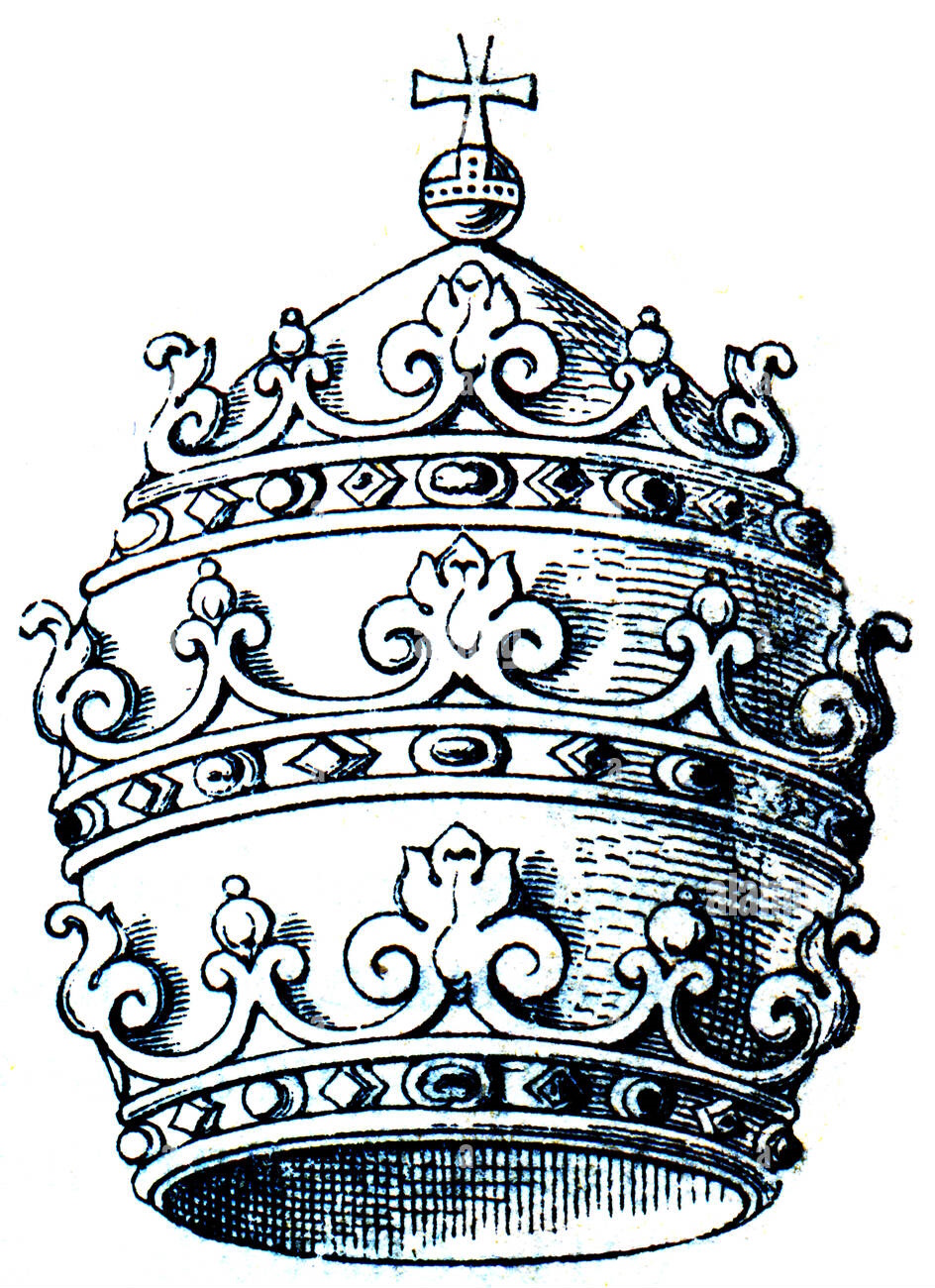

wearing what appears to be
the 1871 Belgian Triple Tiara of Pope Pius IX
Pope Clement was born Bertrand de Got in 1264 at Villandraut in Gascony. De Got was a friend of King Phillip of France. After taking care of Pope Boniface VIII, Phillip had De Got elected as Pope, after which together they dealt with the Knights. For some reason, Pope Clement wanted to stay in France, so he resided at Avignon. This is the "Avignon Captivity" of the Papacy.
"... Know yourself and adapt yourself to new ways;
for new also is the ruler among the gods."
[Oceanus to Prometheus I. Aeschylus,]
Oceanus
![]()
"... it is most advantageous, when truly wise, to be deemed a fool."
[Oceanus to Prometheus I Aeschylus, Prometheus Bound]
![]()
© 2005 Douglas V. Gnazzo
![]()
![]()
![]()
Disclaimer:
Some material presented will contain links, quotes, ideologies, etc., the contents of which should be understood to first, in their whole, reflect the views or opinions of their editors, and second, are used in my personal research as "fair use" sources only, and not espousement one way or the other. Researching for 'truth' leads one all over the place...a piece here, a piece there. As a researcher, I hunt, gather and disassemble resources, trying to put all the pieces into a coherent and logical whole. I encourage you to do the same. And please remember, these pages are only my effort to collect all the pieces I can find and see if they properly fit into the 'reality aggregate'.
Personal Position:
I've come to realize that 'truth' boils down to what we 'believe' the facts we've gathered point to. We only 'know' what we've 'experienced' firsthand. Everything else - what we read, what we watch, what we hear - is what someone else's gathered facts point to and 'they' 'believe' is 'truth', so that 'truth' seems to change in direct proportion to newly gathered facts divided by applied plausibility. Though I believe there is 'truth', until someone representing the celestial realm visibly appears and presents the heavenly records of Facts And Lies In The Order They Happened, I can't know for sure exactly what "the whole truth' on any given subject is, and what applies to me applies to everyone. Until then I'll continue to ask, "what does The Urantia Book say on the subject?"
~Gail Bird Allen
![]()
![]()














-
Urantia Book, 44:0.11 - The Celestial Artisans
Never in your long ascendancy will you lose the power to recognize your associates of former existences. Always, as you ascend inward in the scale of life, will you retain the ability to recognize and fraternize with the fellow beings of your previous and lower levels of experience. Each new translation or resurrection will add one more group of spirit beings to your vision range without in the least depriving you of the ability to recognize your friends and fellows of former estates.
-
Princess Bride 1987 Wallace Shawn (Vizzini) and Mandy Patinkin (Inigo Montoya)
Vizzini: HE DIDN'T FALL? INCONCEIVABLE.
Inigo Montoya: You keep using that word. I do not think it means what you think it means. -
Urantia Book, 117:4.14 - The Finite God
And here is mystery: The more closely man approaches God through love, the greater the reality -- actuality -- of that man. The more man withdraws from God, the more nearly he approaches nonreality -- cessation of existence. When man consecrates his will to the doing of the Father's will, when man gives God all that he has, then does God make that man more than he is.
-
Urantia Book, 167:7.4 - The Talk About Angels
"And do you not remember that I said to you once before that, if you had your spiritual eyes anointed, you would then see the heavens opened and behold the angels of God ascending and descending? It is by the ministry of the angels that one world may be kept in touch with other worlds, for have I not repeatedly told you that I have other sheep not of this fold?"
-
Urantia Book, Foreword - 0:12.12 - The Trinities
But we know that there dwells within the human mind a fragment of God, and that there sojourns with the human soul the Spirit of Truth; and we further know that these spirit forces conspire to enable material man to grasp the reality of spiritual values and to comprehend the philosophy of universe meanings. But even more certainly we know that these spirits of the Divine Presence are able to assist man in the spiritual appropriation of all truth contributory to the enhancement of the ever-progressing reality of personal religious experience—God-consciousness.
-
Urantia Book, 1:4.3 - The Mystery Of God
When you are through down here, when your course has been run in temporary form on earth, when your trial trip in the flesh is finished, when the dust that composes the mortal tabernacle "returns to the earth whence it came"; then, it is revealed, the indwelling "Spirit shall return to God who gave it." There sojourns within each moral being of this planet a fragment of God, a part and parcel of divinity. It is not yet yours by right of possession, but it is designedly intended to be one with you if you survive the mortal existence.
-
Urantia Book, 1:4.1 - The Mystery Of God
And the greatest of all the unfathomable mysteries of God is the phenomenon of the divine indwelling of mortal minds. The manner in which the Universal Father sojourns with the creatures of time is the most profound of all universe mysteries; the divine presence in the mind of man is the mystery of mysteries.
-
Urantia Book, 1:4.6 - The Mystery Of God
To every spirit being and to every mortal creature in every sphere and on every world of the universe of universes, the Universal Father reveals all of his gracious and divine self that can be discerned or comprehended by such spirit beings and by such mortal creatures. God is no respecter of persons, either spiritual or material. The divine presence which any child of the universe enjoys at any given moment is limited only by the capacity of such a creature to receive and to discern the spirit actualities of the supermaterial world.
-
Urantia Book, 11:0.1 - The Eternal Isle Of Paradise
Paradise is the eternal center of the universe of universes and the abiding place of the Universal Father, the Eternal Son, the Infinite Spirit, and their divine co-ordinates and associates. This central Isle is the most gigantic organized body of cosmic reality in all the master universe. Paradise is a material sphere as well as a spiritual abode. All of the intelligent creation of the Universal Father is domiciled on material abodes; hence must the absolute controlling center also be material, literal. And again it should be reiterated that spirit things and spiritual beings are real.
-
Urantia Book, 50:6.4 - Planetary Culture
Culture presupposes quality of mind; culture cannot be enhanced unless mind is elevated. Superior intellect will seek a noble culture and find some way to attain such a goal. Inferior minds will spurn the highest culture even when presented to them ready-made.
-
Urantia Book, 54:1.6 - True And False Liberty
True liberty is the associate of genuine self-respect; false liberty is the consort of self-admiration. True liberty is the fruit of self-control; false liberty, the assumption of self-assertion. Self-control leads to altruistic service; self-admiration tends towards the exploitation of others for the selfish aggrandizement of such a mistaken individual as is willing to sacrifice righteous attainment for the sake of possessing unjust power over his fellow beings.
-
Urantia Book, 54:1.9 - True And False Liberty
How dare the self-willed creature encroach upon the rights of his fellows in the name of personal liberty when the Supreme Rulers of the universe stand back in merciful respect for these prerogatives of will and potentials of personality! No being, in the exercise of his supposed personal liberty, has a right to deprive any other being of those privileges of existence conferred by the Creators and duly respected by all their loyal associates, subordinates, and subjects.
-
Urantia Book, 54:1.8 - True And False Liberty
There is no error greater than that species of self-deception which leads intelligent beings to crave the exercise of power over other beings for the purpose of depriving these persons of their natural liberties. The golden rule of human fairness cries out against all such fraud, unfairness, selfishness, and unrighteousness.

